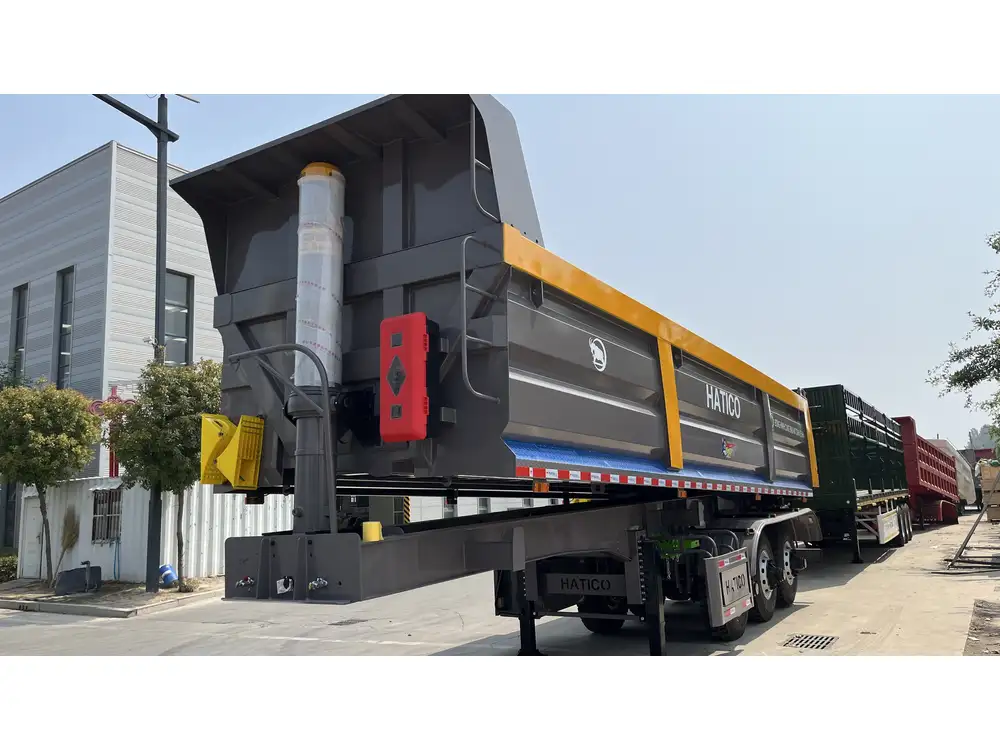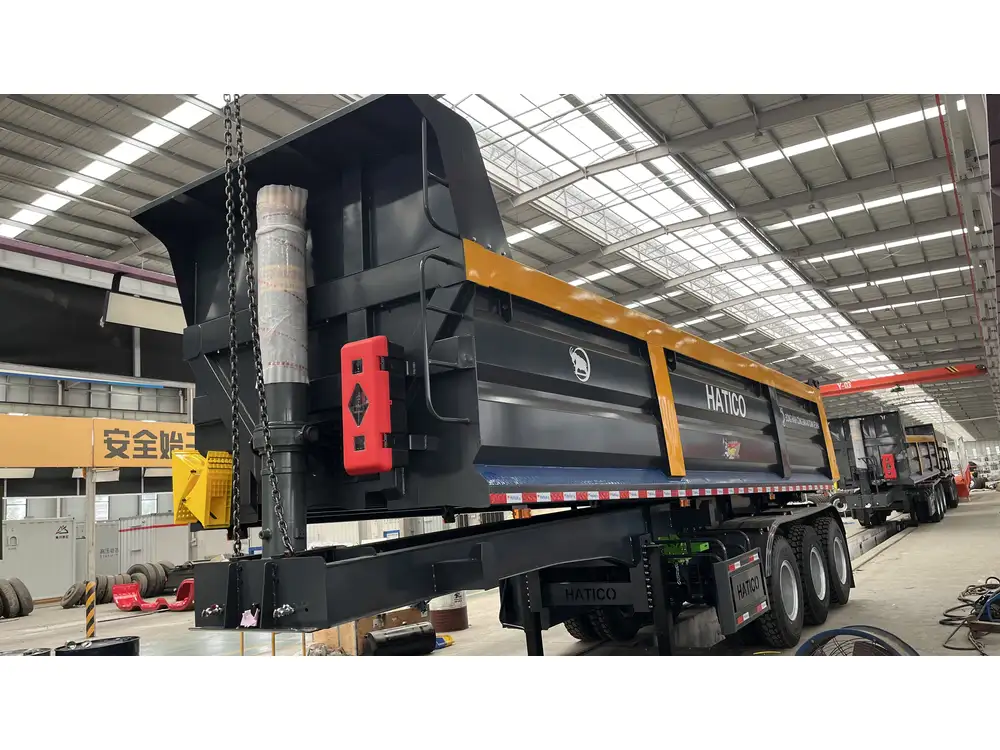Navigating the world of dump trailers requires insight, strategy, and the right knowledge to make informed decisions. Whether you’re a contractor needing to transport heavy materials, a homeowner tackling a landscaping project, or an event planner dumping debris from a large gathering, renting a dump trailer can significantly ease your workload. Below, we delve into critical factors to consider when looking for a dump trailer rental, locations to rent from, costs, and tips to maximize your rental experience.
Understanding Dump Trailers: What They Are and Their Uses
What Is a Dump Trailer?
A dump trailer is a type of trailer designed to transport loose materials, such as sand, gravel, dirt, and debris, providing an efficient means of unloading thanks to its hydraulic lifting mechanism. This genre of trailer is versatile and is available in various sizes, typically ranging from 5 to 20 feet in length, to accommodate different hauling needs.

Common Uses for Dump Trailers
- Construction Projects: Transporting and unloading heavy materials.
- Landscaping: Moving soil, mulch, or decorative stones.
- Debris Removal: Clearing waste after renovations or large events.
- Agriculture: Transporting feed, fertilizers, or harvests.
Advantages of Renting Over Buying
| Advantage | Renting | Buying |
|---|---|---|
| Cost-Effectiveness | Lower upfront costs, pay only for use | High initial investment, maintenance |
| Flexibility | Choose the right size for each job | Limited to what you own |
| Maintenance | No upkeep costs, maintenance by provider | Ongoing repair and maintenance costs |
| Storage Space | No need for long-term storage | Requires significant space |
Understanding these distinctions highlights why renting a dump trailer can often be the sensible choice for project-based needs.
Where Can You Rent a Dump Trailer?
Whether you need a trailer for a day or a month, there are various options to rent a dump trailer. Here’s a breakdown of where and how to rent effectively.

1. Equipment Rental Companies
National Chains
Prominent rental companies with a national footprint include:
- U-Haul: Known for convenience, they offer accessible trailers and a variety of sizes.
- Home Depot: Their rental services include a range of dump trailers that cater to DIY projects.
- Sunbelt Rentals: Specializes in commercial-grade equipment and trailers for larger projects.
These companies typically provide extensive network service locations, giving you the advantage of localized support and professional service.
Local Rental Shops
Searching for local shops might yield great deals! Check storefronts in your area. Local businesses often have lower rates and personalized service. Here are a few pointers on finding them:
- Search for “equipment rental near me” to find local businesses.
- Use community boards or local Facebook groups to ask for recommendations.

2. Online Rental Marketplaces
Digital platforms have revolutionized the rental landscape. Consider exploring these online services:
- Turo: Although traditionally focused on vehicles, some listings include trailers.
- Getaround: Offers peer-to-peer rentals. Users can rent trailers directly from individual owners.
Utilizing online marketplaces can provide competitive pricing, flexibility, and unique options that standard rental companies might not offer.
3. Construction Companies
If you have established relationships with local construction firms, consider asking them about renting a dump trailer. Many construction companies that own dump trailers offer rentals, especially if they have additional inventory from larger projects. This route can often lead to competitive rates, as they might focus on fostering community relationships.
Key Considerations When Renting a Dump Trailer
Renting a dump trailer isn’t merely about choosing the lowest price. Below are essential considerations that can ensure a smooth rental process.

Trailer Size and Capacity
Choosing the right size trailer is critical. Below is a simple table for size reference based on typical usage:
| Trailer Size | Ideal For | Load Capacity |
|---|---|---|
| 5-6 ft | Small landscaping projects | 2,000-3,000 lbs |
| 7-10 ft | Residential remodeling | 4,000-6,000 lbs |
| 12-14 ft | Major moves or renovations | 8,000+ lbs |
| 16-20 ft | Construction projects | 10,000+ lbs |
Assess your project needs and choose accordingly to avoid overloading any trailer beyond its capacity, which could cause safety hazards and extra charges.
Duration and Timing of Rental
Consider how long you’ll need the trailer. Most rental companies offer:
- Daily rentals: Ideal for short-term projects.
- Weekly rates: Often provide a better deal for longer-term tasks.
- Monthly rentals: Cost-effective for ongoing projects.
By evaluating these options, you can select a rental plan that suits your project timeline.
Rental Costs and Fees
Understanding the costs associated with renting a dump trailer is fundamental. Consider the following cost factors:
- Base rental fee: The core cost of renting the trailer.
- Deposit: A security amount held until the trailer is returned.
- Insurance: Optional insurance to cover potential damages during the rental.
- Mileage or usage limits: Additional charges may apply for exceeding set limits.
- Fuel policy: Understand if you need to return the trailer with a full tank or maintain a certain fuel level.
Here’s a possible cost breakdown:
| Cost Component | Estimated Cost Range |
|---|---|
| Daily Rental Fee | $50 – $150 |
| Weekly Rental Fee | $300 – $600 |
| Deposit | $100 – $500 |
| Insurance | $10 – $25 per day |
This budget helps in accurately forecasting your rental expenditures.

State and Local Regulations
Familiarize yourself with local regulations regarding dump trailers:
- Permits: Some areas may require permits for using a trailer on public roads.
- Weight limitations: Always respect local weight limits to avoid fines.
- Noise ordinances: Particularly in residential areas, be aware of noise restrictions related to loading and unloading.
Insurance and Liability Coverage
When renting, inquire about insurance coverage options. Proper insurance can save money and hassle in case of accidents or damages. Assess the liability insurance offered by the rental company and consider additional coverage if necessary.
Maximizing Your Dump Trailer Rental Experience
Now that you’ve secured a trailer, maximizing its use is paramount. Here are strategic tips to enhance your experience and efficiency:

Plan Your Loading Process
Thoroughly plan how you will load and unload:
- Balanced Load Distribution: Ensure that weight is evenly distributed to maintain trailer balance.
- Securing Loads: Use ropes or straps to secure loose materials to prevent shifting.
Pick Up and Return Timing
- Timely Pick-Up: Collect your rental trailer promptly to maximize your rental hour.
- Return on Time: Return your trailer exactly as agreed upon to avoid late fees.
Inspect the Trailer
Conduct a thorough inspection before leaving the rental location:
- Brakes and Tires: Check for responsiveness and appropriate inflation.
- Hydraulic Function: Test the lift to ensure it’s functioning properly.
- Overall Condition: Examine for pre-existing damages to ensure no mishaps with the security deposit.

Maintain a Safe Driving Approach
While transporting your load, keep safety in mind:
- Adjust for Weight: Drive slower, particularly on rough or slippery surfaces.
- Use Signals: Always use turn signals and brake lights to communicate with other drivers.
- Check for Overhangs: Be aware that loads may extend past the trailer’s edge; carefully navigate under low clearances.
Conclusion
Renting a dump trailer can be a game-changer for both casual projects and professional tasks alike. By carefully selecting the right trailer, understanding costs, familiarizing yourself with local regulations, and optimizing your rental experience, you can efficiently tackle your hauling needs. Accessing dump trailer rentals can streamline much of the heavy lifting involved in numerous projects, thus saving you time and effort. Enjoy a seamless, hassle-free rental experience by keeping these guidelines in mind, and watch your projects move swiftly from planning to execution.



